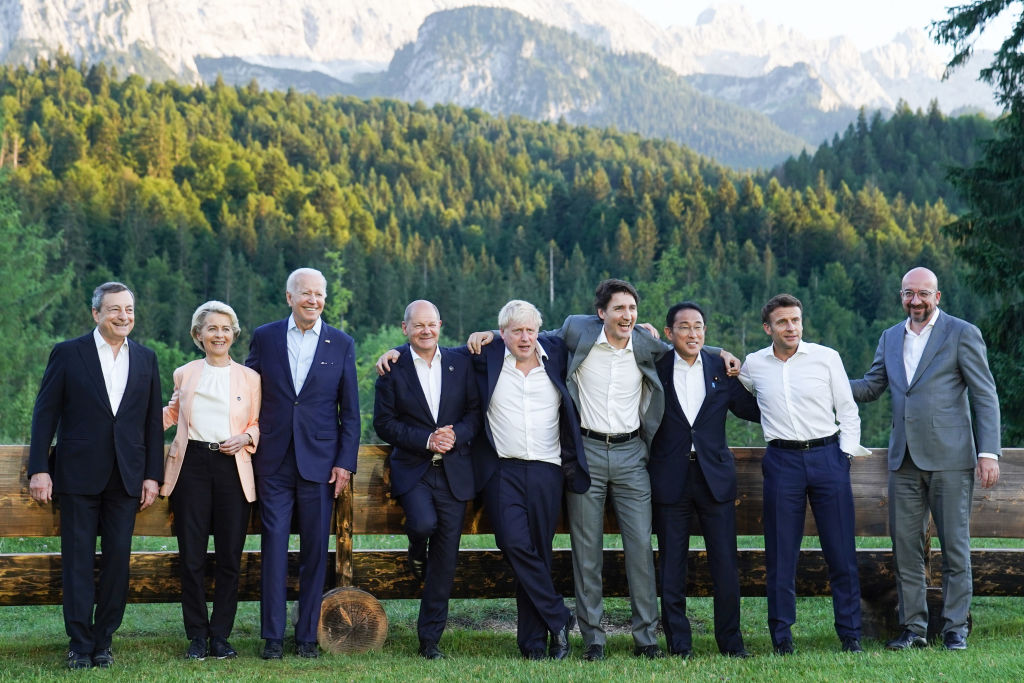Johnson’s plans for further steel tariffs are a black mark against Global Britain

Boris Johnson has said he intends to extend tariffs on steel from China. This is a clear breach of WTO rules and, allegedly, was the final straw for his ethics adviser. But to Johnson this is the reasonable next step. He will also impose them on other countries, this time in line with rules from the oversight body, the Trade Remedies Association. Not content with breaching international law over Northern Ireland and his policy on immigration being hauled in front of the European Court of Human Rights, Johnson wants to pick a fight with the World Trade Organisation as well.
Speaking over the weekend, Johnson justified the policy on the basis of spiralling energy prices which have put British steel into a bind.
But the repercussions of the wider policy are much more damaging than tariff-free trade for steel. Tariffs create friction which means lower trade and higher costs for consumers and businesses.
Tariffs create added costs for businesses. Steel is what is known as an intermediate good, in that it is used in other products. In the UK, for example, it is used by industries such as aerospace, car manufacturing, and construction. Given the fact that these industries add far more value to the UK economy than the steel industry, the government will be rewarding a relatively insignificant industry at the expense of our most valuable ones. It is obviously impossible to predict how individual businesses will react, but if increased costs are a prerequisite for being based in Britain, we should not be surprised if some businesses decide to set up shop elsewhere.
Businesses often pass increased costs onto consumers. Businesses which rely on steel will no doubt be forced to increase their prices. This is undesirable at the best of times, but given that the country is in the midst of a cost of living crisis with many people set to endure extreme financial hardship, it is unforgivable. The government should be making tackling inflation its number one priority right now, instead it’s implementing protectionist policies which will exacerbate it.
It will not just be people in the UK who will suffer. Imposing tariffs on steel producers in less economically developed countries, such as India and Turkey, strips the people working in these industries of the opportunity to live a better life. Free trade has lifted people out of poverty on a scale that is unprecedented in human history. There are countless people around the world who are alive today thanks to free trade. It is mutually beneficial to economies and countries.
None of this has done wonders for the UK’s reputation. Nor was it in a sterling place to begin with. There are deep concerns about the UK’s position over the Northern Ireland Protocol, a clear backtracking on promises made as a result of a deal Johnson signed himself. To be trusted on the world stage, we must show we are good for our word. It will cast doubt over the treaties we have already signed and make negotiating future free trade agreements even more difficult.
It undermines the ambitions of ‘Global Britain’, an already vague concept but one which, at the very least, seemed to involve a commitment to free trade and the international rules based system. Imposing tariffs in order to prop up a particular industry flies in the face of free trade as it is a protectionist move. During the Brexit referendum, the lowest-bar for trade, in lieu of a deal with the EU, was “trading on WTO rules”. It seems Johnson cannot even muster that. Britain should be a beacon of the principles of free trade, with a deep respect for the importance of the WTO, instead it has chosen to wilfully ignore and break its rules.
Johnson, we know, is being blown around by political headwinds. In the face of this, he is scrambling to find loyalty wherever he can. It is true, there are sometimes legitimate reasons to impose tariffs, such as to tackle unfair trading practices. This is not the case. It is a transparent attempt to shore up support from some backbench MPs with a protectionist streak. The trade off? A weakened economy, further jobs at risk, and an open disdain for the international rules based system.
